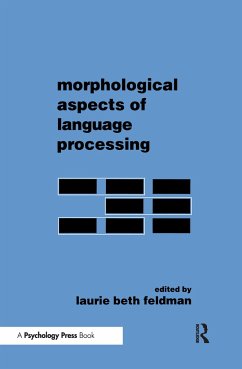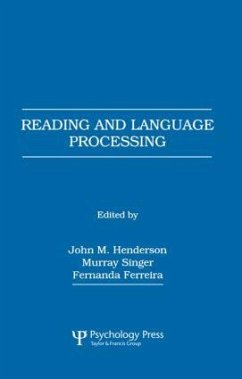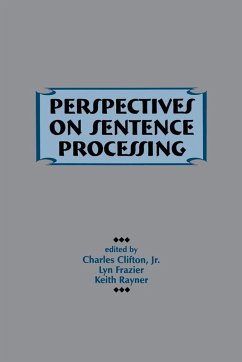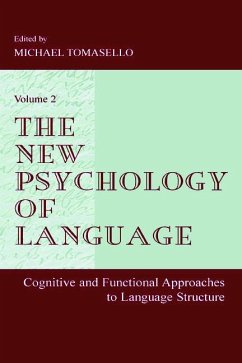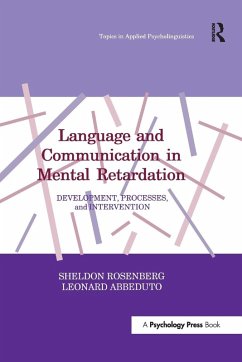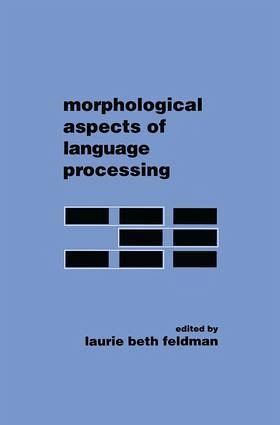
Morphological Aspects of Language Processing

PAYBACK Punkte
36 °P sammeln!
It is now well established that phonological -- and orthographic -- codes play a crucial role in the recognition of isolated words and in understanding the sequences of words that comprise a sentence. However, words and sentences are organized with respect to morphological as well as phonological components. It is thus unfortunate that the morpheme has received relatively little attention in the experimental literature, either from psychologists or linguists. Due to recent methodological developments, however, now is an opportune time to address morphological issues. In the experimental litera...
It is now well established that phonological -- and orthographic -- codes play a crucial role in the recognition of isolated words and in understanding the sequences of words that comprise a sentence. However, words and sentences are organized with respect to morphological as well as phonological components. It is thus unfortunate that the morpheme has received relatively little attention in the experimental literature, either from psychologists or linguists. Due to recent methodological developments, however, now is an opportune time to address morphological issues. In the experimental literature, there is a tendency to examine various psycholinguistic processes in English and then to assume that the account given applies with equal significance to English and to other languages. Written languages differ, however, in the extent to which they capture phonological as contrasted with morphological units. Moreover, with respect to the morpheme, languages differ in the principle by which morphemes are connected to form new words. This volume focuses on morphological processes in word recognition and reading with an eye toward comparing morphological processes with orthographic and phonological processes. Cross-language comparisons are examined as a tool with which to probe universal linguistic processes, and a variety of research methodologies are described. Because it makes the experimental literature in languages other than English more accessible, this book is expected to be of interest to many readers. It also directs attention to the subject of language processing in general -- an issue which is of central interest to cognitive psychologists and linguists as well as educators and clinicians.





